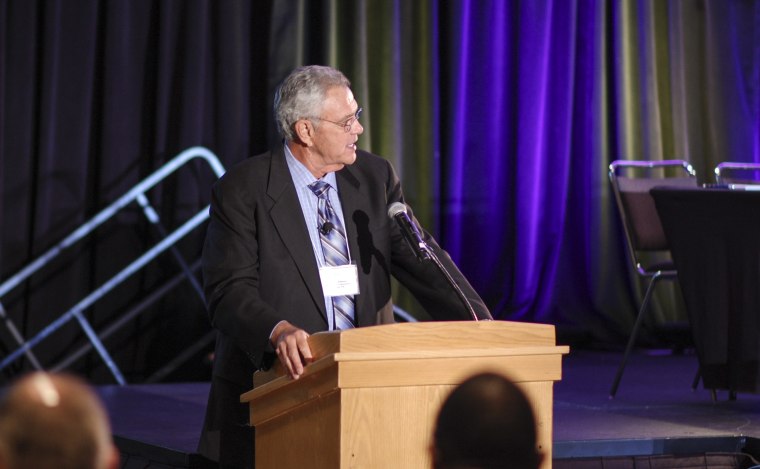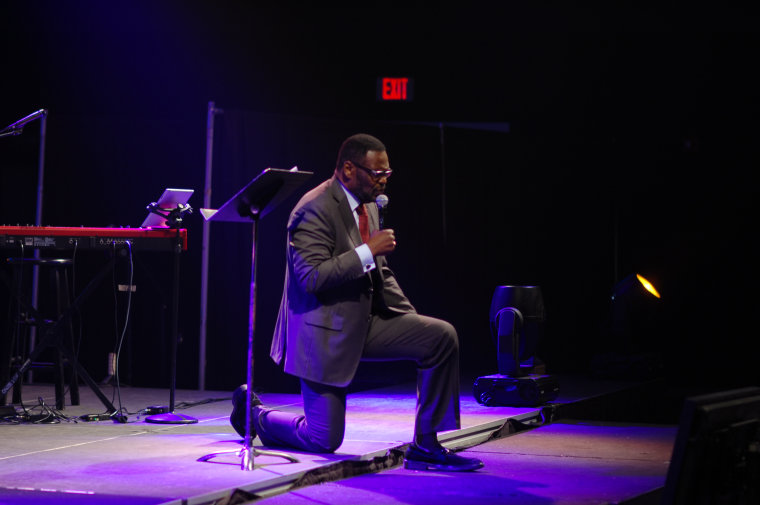In an effort to bring dialogue and healing to a community, local and national leaders gathered for a town hall meeting in Baltimore this week at Morgan State University.
“State of Emergency: Baltimore and Beyond," was broadcast on TV One and addressed police relations, criminal justice reform, and disenfranchised communities. Among voices advocating criminal justice reform was Bishop Harry Jackson, senior pastor of Hope Christian Church in Beltsville, Maryland.
“The bigger end of this funnel is 2.4 million people in prison in America. Every year nearly 600,000 come out. Eighty percent of them are going back and what that’s creating in the black community and brown community is a permanent underclass,” said Jackson. “But what we have to do now is, the church has got to stand up like we did in the old time civil rights days.”
Jackson’s comments were received with applause and affirmations. The church undeniably played a monumental role in the civil rights movement of the 1960s. And in the midst of perilous rioting last week, church leaders marched through the streets of Baltimore proclaiming the the lyrics of a faithful hymn:
We are Soldiers,In the armyWe have to fight,Although we have to cryWe have to hold up the bloodstained bannerWe have to hold it upUntil we Die!
Obviously the racial division which has always existed in our country has been brought to the forefront. Advanced technology and social media have aided in exposing the ugly truths about our society to the point that it can no longer be ignored.
Blatant injustices have resulted in killings, rioting, and increased racial and political tension. Cities have been burned and people deeply wounded. At a time of much unrest, Americans of all races are seeking answers, hope, healing and peace. Where do we turn? Many wonder whether the church is really at the helm of reconciliation.
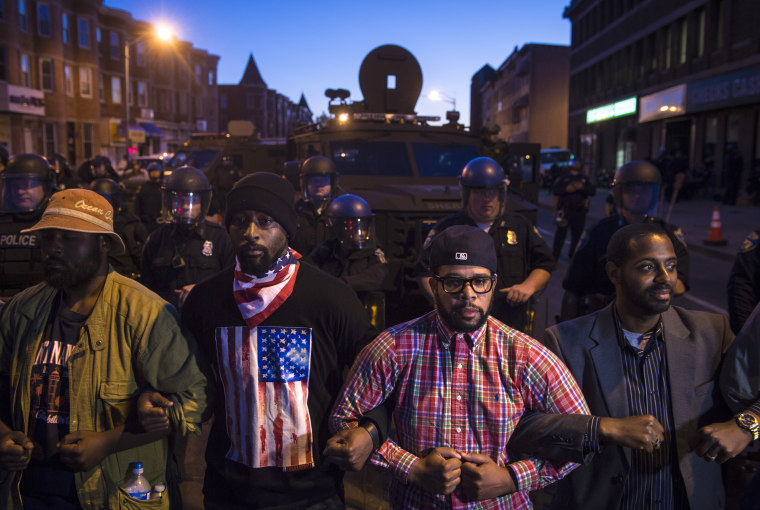
Last week, as Baltimore unrest swelled, hundreds of Christian pastors and leaders from around the country convened at “The Reconciled Church (TRC): Healing the Racial Divide” summit in Orlando. According to the founders of TRC (Bishop Harry Jackson, Bishop T.D. Jakes and Pastor James Robison) the mission of The Reconciled Church movement is to compel church leadership to unify regardless of race, class and denomination in effort to avert national crisis and bring restoration to churches and their communities.
Bishop Jackson spoke candidly with NBCBLK about the responsibility of the church, citing the bible book of Ezekiel which Jackson says reveals that the church is mandated by God to help bring healing to the nation. “The Lord rebukes the prophets and says, ‘if you had gone up into the gaps, I would have built a hedge of protection around the city. But, you didn’t and I couldn’t.’ I sought for a man to stand in the gap and to make up the hedge before me.’
And so, I think wherever there’s a gap, a breakdown between God’s revealed will and man’s sinful actions, if the church would rise up ....God will back us up and bring healing,” said Jackson. “God seems to be saying ‘I would have taken care of it. You were scared, you didn’t stand for me and therefore I’m upset with you.’
On hope and healing, Pastor James Robison of Life Outreach International church in Fort Worth, Texas spoke personally about his upbringing. “I grew up fatherless, the product of rape and the doctors wouldn’t abort me. He saw possibilities,” Robison revealed. “We have to start telling people, as leaders, that the sky’s not the limit. God’s the limit. If they’re being hindered, we’ve got to untie them. We’ve got to show people hope.”
The conference was comprised of panel discussions as well as Q&A to reach consensus on the critical problems in the country and introduce “The Seven Bridges to Peace”—An action plan to heal the racial divide in the nation. The seven bridges are Prayer and Reconciliation Events, Education Reform, Civic Engagement, Community Outreach and Service, Marriage and Family, Criminal Justice Reform and Economic Development.
At the first panel, church leaders and community experts focused on the need for criminal justice reform.
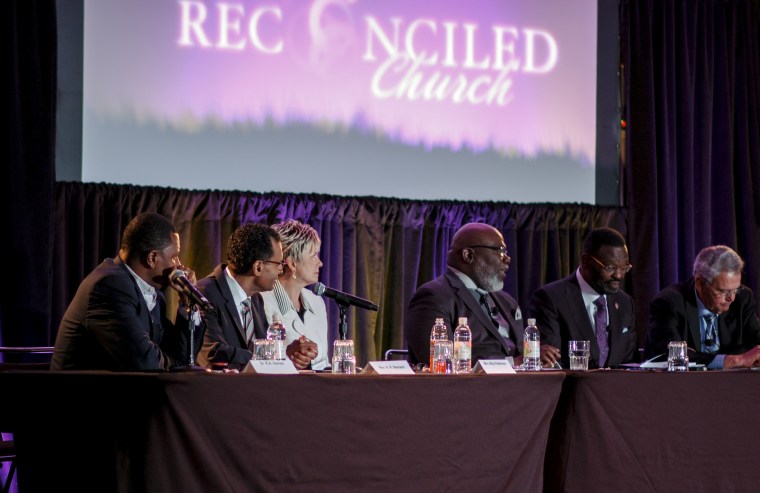
"We have systems in this country that have tied the hands and feet of people and then expect them to get up," said Bishop T.D. Jakes, senior pastor of The Potters House in Dallas.
Jim Liske, CEO of Prison Fellowship Ministries echoed this point. “For forty years in America, we’ve asked how do we get bad people out of our neighborhoods? We’ve gone from 230,000 to 2.3 Million [people in prison]. We have a presupposition that there are bad people in neighborhoods and we go look for them and incarcerate them,” said Liske.
“The question we must ask is, how do we bring good people home? When they are incarcerated, we apply what the Quakers called the penitentiary system. During their incarceration they go through a process of penance and become good people. So good people come back to our neighborhoods. Change the question.”
The criminal justice reform proposals encouraged attendees to research and support six laws which will change the lives of ex-offenders; The Smart Sentencing Act, Redeem Act, Corrections Act, FAIR Act, Comprehensive Justice and Mental Health Act, and the SAFE Act.
Many believe the church should have no involvement in government affairs such as criminal justice, citing “separation of church and state.” However, these church leaders believe “separation of church and state” has been taken out of context.
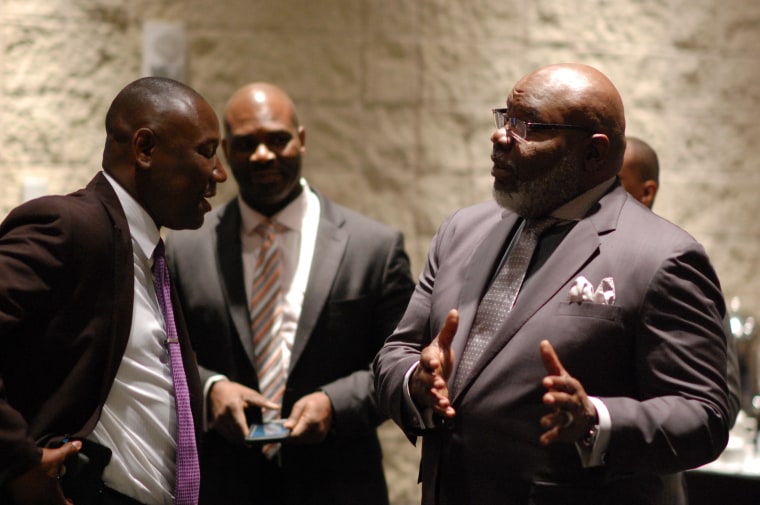
Pastor Jim Garlow of Skyline Ministries in San Diego told NBCBLK that Thomas Jefferson's "Wall of Separation" has been taken out of context.
“He meant it in one way. And that was that the federal government had no right to intrude and control peoples religious beliefs. The first amendment limits the federal government. It doesn’t address the issue of the church being involved in the life of the state at all. We can be sure of this because Jefferson helped support the beginning of weekly worship services in the U.S. Capitol.” Garlow has recently restarted church services in the Capitol called The Jefferson Gathering.
In an effort to provide tangible tools for these leaders, the criminal justice panel offered pointed questions that communities should ask of candidates for public office.
For example: Do you believe incarceration should be the default punishment for all crimes, including drug offenses and property crimes? Do you believe more resources should be given to support poor defendants? Do you think the bail system needs to be reformed?
The conference encouraged attendees to be more engaged in politics and their local communities while showing empathy and offering prayer.
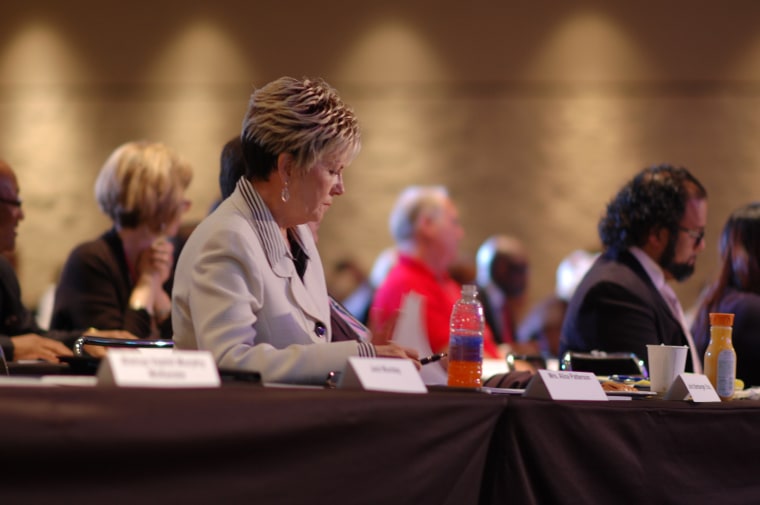
“The Grand Canyon of all divides in America is not racial it’s political,” said Alice Patterson, Author of Bridging the Racial and Political Divide. “There is a decision making table in both political parties and it’s been hidden from black folk in the Democratic party. There is a decision making table where you decide what your party stands for called the platform. And you decide how to elect the people who run your party. I have that information and I want to give it to you.”
“We’re pastoring on two levels. One in the church ecclesiastically but [two] very practically and socially applicable,” said Pastor A.R. Bernard of Christian Cultural Center in Brooklyn, New York.
“There are so many opportunities that we have to show the compassion and love of God through humanitarian works and social engagement. And that’s a part of our mission statement which we do,” continued Bernard.
The summit concluded with corporate prayer and a call-to-action for leaders to return to their communities and urgently begin implementing “The Seven Bridges of Peace” action plan.
